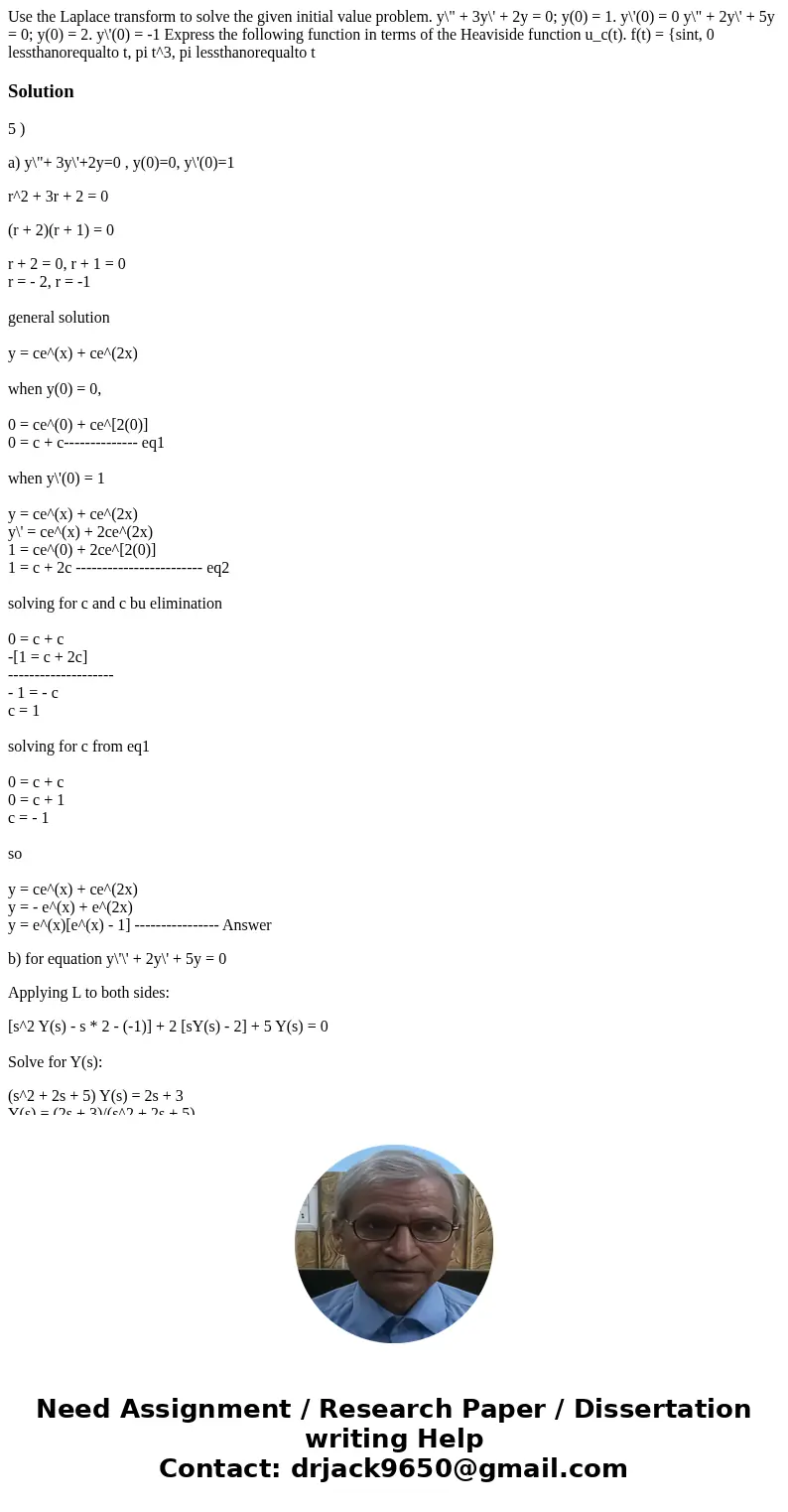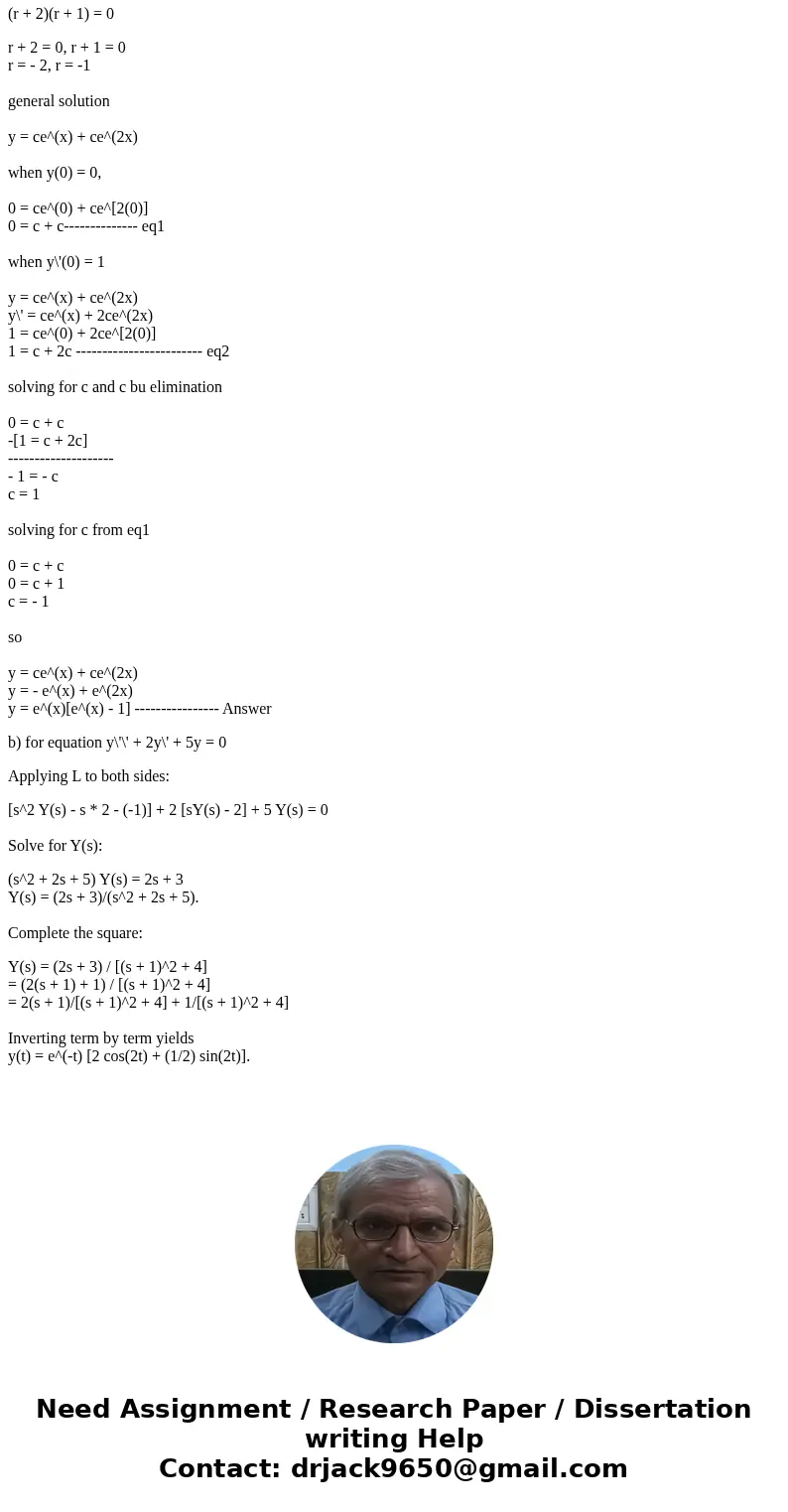Use the Laplace transform to solve the given initial value p
Solution
5 )
a) y\"+ 3y\'+2y=0 , y(0)=0, y\'(0)=1
r^2 + 3r + 2 = 0
(r + 2)(r + 1) = 0
r + 2 = 0, r + 1 = 0
r = - 2, r = -1
general solution
y = ce^(x) + ce^(2x)
when y(0) = 0,
0 = ce^(0) + ce^[2(0)]
0 = c + c-------------- eq1
when y\'(0) = 1
y = ce^(x) + ce^(2x)
y\' = ce^(x) + 2ce^(2x)
1 = ce^(0) + 2ce^[2(0)]
1 = c + 2c ------------------------ eq2
solving for c and c bu elimination
0 = c + c
-[1 = c + 2c]
--------------------
- 1 = - c
c = 1
solving for c from eq1
0 = c + c
0 = c + 1
c = - 1
so
y = ce^(x) + ce^(2x)
y = - e^(x) + e^(2x)
y = e^(x)[e^(x) - 1] ---------------- Answer
b) for equation y\'\' + 2y\' + 5y = 0
Applying L to both sides:
[s^2 Y(s) - s * 2 - (-1)] + 2 [sY(s) - 2] + 5 Y(s) = 0
Solve for Y(s):
(s^2 + 2s + 5) Y(s) = 2s + 3
Y(s) = (2s + 3)/(s^2 + 2s + 5).
Complete the square:
Y(s) = (2s + 3) / [(s + 1)^2 + 4]
= (2(s + 1) + 1) / [(s + 1)^2 + 4]
= 2(s + 1)/[(s + 1)^2 + 4] + 1/[(s + 1)^2 + 4]
Inverting term by term yields
y(t) = e^(-t) [2 cos(2t) + (1/2) sin(2t)].


 Homework Sourse
Homework Sourse